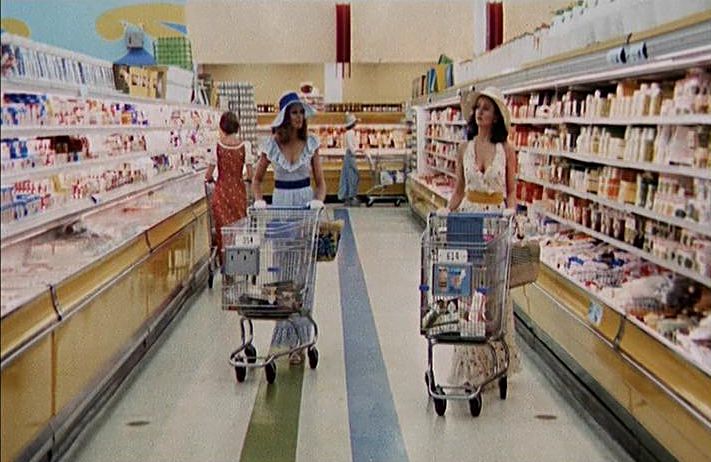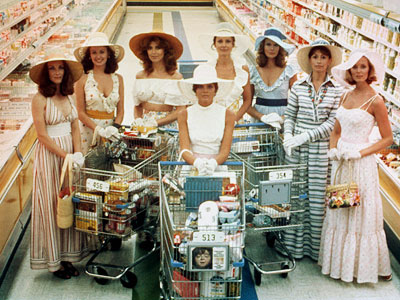Some still eat McDonald’s and Kraft Singles and Lunchables and other suspicious-looking pseudo-edibles, but thankfully far fewer are stepping up to those plates. Big Food in America has repeatedly chosen taste over nutrition, a decision which paid off handsomely for a good while, but that mindset has come back to bite the industry. While the corporations have not changed, consumer choices have. It’s probably, in part, consequence of the ceaseless food porn and tiresome celebrity chefs which inundate us. Those screaming, skilleting idiots may have served a purpose after all. From Gary Silverman at the Financial Times:
Andy Warhol knew what he was doing. In the early 1960s, when he was looking to create a stir in the world of modern art, he fixed on an image as familiar to his audience as the Pietà was to Michelangelo’s — the Campbell’s soup can. It was both a consumer good and an icon of the age. Red and white, like the wine and bread of the sacraments Warhol knew from church, it promised comfort for the user once its condensed contents were mixed with water, heated and served.
But Warhol’s old models are now facing misfortune. The signature offering of Campbell Soup Company of Camden, New Jersey, founded in 1869, is falling out of favour with consumers in the US. Campbell’s condensed soup is no longer the stuff of modern art; it is becoming a symbol of days gone by, when Americans could be counted on to stock their pantries with the processed food brands advertised relentlessly on the three big television networks.
Today, a revolution is under way in US supermarkets. A more health-conscious millennial generation is forsaking the convenience food of their baby-boomer parents for fresher, more natural fare and proteins of various sorts. Burgeoning immigrant populations are stoking demand for different types of provisions. Beleaguered consumers are buying lower-cost store brands at bare-bones retailers, or cooking less and eating out more so they can work longer hours.
The result is that even as the US economy has recovered, some of the country’s best-known food companies — and some of their most enduring brands — have been suffering. Sales of Campbell’s condensed soup slipped 3 per cent year on year during its last six months of reported results. During the most recent quarter, North American revenues for Kellogg’s cereals and other morning foods fell 7.7 per cent, while Kraft Foods, the North American grocery business of the old consumer giant, reported a 6.6 per cent sales decline for meals and desserts, including its macaroni and cheese in a box.
So tumultuous are the culinary times that some of history’s most successful marketing organisations are admitting that they have lost touch with the people who buy their products. John Cahill, chairman and chief executive of Kraft, might as well have been speaking for the industry when he issued an extraordinary mea culpa this year as he cleaned his corporate house, saying goodbye to senior executives including his chief financial officer and adding a new “vice-president of growth initiatives”.
“It’s clear that our world has changed and our consumers have changed,” Mr Cahill said. “But our company has not changed enough.”•
Tags: Gary Silverman



